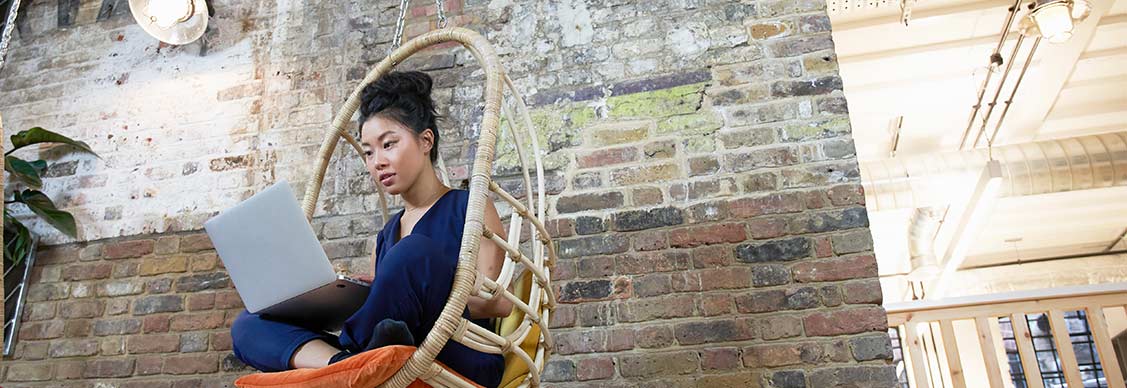Three things workers now want from the office
Office workers have spoken, but how well are employers and building owners delivering?
The roll out of hybrid policies is giving employees the flexibility to choose their own work settings. But it has also set the clock for businesses to provide the spaces staff want and need for their days in the office.
Relaxation spaces, healthy food services and outdoor areas top the list of amenities that can lure workers into their city offices as they seek a feeling of connectedness with colleagues along with environments that are as comfortable as home, according to a survey of office workers in the Regenerative Workplace report from JLL.
“As employees transition from work-from-home to a post-pandemic future, people are expecting their employers to be more caring and their workplace to offer a new regenerative experience,” says Flore Pradère, global research director for JLL Work Dynamics.
Knowing what will get optimum engagement and productivity from workers is one thing. But right now only 17 percent of workers have access to relaxation spaces, 19 percent to healthy food, and 25 percent to outdoor areas. For those that do, uptake of wellbeing amenities in the office is high, with 70 percent of workers using them weekly, the JLL report found.
Employers who don't build a strategy around the desired experiences will struggle to recruit and retain top talent in their industry, says Ben Tindale, managing director of accounts, JLL Work Dynamics – Australasia.
“Now is the chance of a lifetime for employers to reconcile wellbeing with performance,” he says. “Ignoring these expectations will be a missed opportunity with consequences for business outcomes.”
Here’s a deeper dive into the top three wishes of corporate employees.
Relaxation Spaces
Collectively, workers put office spaces geared towards relaxation at the very top of their expectations. Some 45 percent of survey respondents cited it as important to restoring their wellbeing and achieving sustainable performance.
"The office should offer an experience as comfortable as home, but with compelling, energetic spaces and a sense of community that isn't obtainable at home," Tindale says. "Employees will come back to the office for team events and collaboration."
Some organizations are creating relaxation with common spaces around the best views, and with comfortable furnishings around the office. Quiet areas that are tucked away from the main traffic areas of an office, seats in an outdoor location, or reclining chairs behind curtains or doors are other examples.
Looking for more insights? Never miss an update.
The latest news, insights and opportunities from global commercial real estate markets straight to your inbox.
Healthy food services
A close second, with 44 percent of workers choosing this as an important office amenity, is healthy food services. This is something global tech giants have led the way on for years.
“Flexible work requires flexible eating options,” Tindale says. “With traditional one-hour lunch breaks almost redundant, full main dishes are being trimmed in favour of high-quality, easier to eat options like sushi or burgers with barista coffee and fresh juices.”
Additionally, changing working patterns means food availability at various times of day must be considered. Health-conscious vending machines and snack stations scattered throughout the workplace can address this.
However, office health doesn't start and end with what's available to eat. It also covers the surrounding environment.
By creating a whole setting approach with welcoming spaces to enjoy meals, meetings, and to work within, employees will be more productive, satisfied in their jobs, less stressed and anxious, have fewer sick days and more likely to stay with their employer.
Outdoor Spaces
Having pots of nature around brought numerous benefits to offices pre-pandemic, such as reducing stress, increasing productivity and reducing sickness. And during lockdowns, indoor plants became the home-worker’s must-have.
There’s a reason: nature and outdoor spaces relieve stress, boost wellbeing, bring happiness, and in the workplace, can build job satisfaction. It is why 41 percent of workers have put outdoor spaces in their top three expectations of a wellbeing-oriented office.
“There are huge variations in the type of outdoor space businesses can provide, but encouraging workers to take a break from the indoors can be done by providing benches and tables outdoors, enabling easy entries and exits to outdoor spaces, or designing garden areas where possible,” Tindale says.
Some 25 percent of workers say they are currently able to access stimulating outdoor spaces – most likely because of existing office designs – which suggests employers have been better at delivering on this front than healthy food and relaxation spaces.
